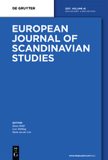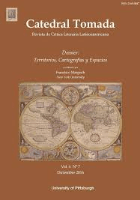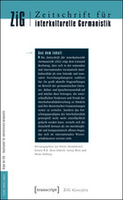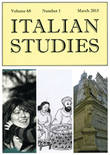
POETICA-ZEITSCHRIFT FUR SPRACH-UND LITERATURWISSENSCHAFT
Scope & Guideline
Bridging Linguistics and Literary Theory with Innovative Research
Introduction
Aims and Scopes
- Interdisciplinary Literary Analysis:
The journal promotes interdisciplinary approaches, integrating perspectives from history, philosophy, psychoanalysis, and cultural studies to analyze literary texts. - Exploration of Memory and Identity:
A consistent focus on themes of memory, identity, and cultural history allows for the examination of how literature reflects and shapes collective and individual identities. - Poetics and Politics:
The interplay between poetics and politics is a core area of inquiry, investigating how literary forms and themes respond to and critique socio-political contexts. - Innovative Literary Forms:
The journal pays particular attention to innovative literary forms, including montage, surrealism, and digital literature, exploring how these forms challenge traditional narrative structures. - Cultural and Historical Contextualization:
Papers often contextualize literary works within broader cultural and historical frameworks, highlighting their relevance in contemporary society.
Trending and Emerging
- Memory Studies:
An increasing focus on memory studies indicates a growing interest in how literature engages with collective and individual memory, particularly in the context of trauma and historical events. - Digital and Multimedia Literature:
The rise of digital and multimedia literature is a trending theme, reflecting the impact of technology on literary production and consumption. - Gender and Queer Studies:
There is a notable uptick in research related to gender and queer studies, emphasizing the exploration of identity, representation, and the politics of sexuality in literature. - Cultural Politics and Resistance:
Themes surrounding cultural politics and resistance are gaining traction, particularly in relation to works that confront colonial legacies and contemporary social injustices. - Ecocriticism and Environmental Literature:
Emerging discussions on ecocriticism and environmental literature suggest a growing awareness of ecological issues within literary contexts, reflecting broader societal concerns about the environment.
Declining or Waning
- Traditional Literary Criticism:
There is a noticeable decline in papers focused solely on traditional literary criticism, which may indicate a shift towards more interdisciplinary and innovative approaches. - Historical Literary Studies:
The focus on historical literary studies, particularly those that do not engage with contemporary issues, seems to be diminishing, suggesting a preference for topics that resonate with current socio-political contexts. - Formalism and Structuralism:
The interest in formalist and structuralist analyses has waned, as scholars increasingly favor post-structuralist and deconstructive approaches that allow for a more nuanced exploration of texts. - Canonical Texts:
There appears to be a reduced emphasis on canonical texts, with more attention being directed towards marginalized voices and contemporary literature. - Static Theoretical Frameworks:
The use of static theoretical frameworks is declining, as the journal increasingly embraces dynamic and evolving theoretical perspectives.
Similar Journals

Teksty Drugie
Cultivating Insightful Dialogue in Literary ScholarshipTeksty Drugie is a premier academic journal dedicated to the field of Literature and Literary Theory, published by the Polish Academy of Sciences, Institute of Literary Research. With its issuance beginning in 2008 and extending intermittently to 2020, this journal has been a significant contributor to literary scholarship in Poland and beyond. The journal holds a commendable Q2 ranking in its category for 2023, indicating its influential status amongst peers in the Arts and Humanities realm, and an impressive Scopus rank of #736 out of 934 in the Literature and Literary Theory domain, with a 21st percentile ranking. Researchers and students will find this journal invaluable for its rigorous academic standards and insightful contributions to contemporary literary discourse. While traditionally available through subscription, Teksty Drugie remains an essential resource for those engaged in the study of literature, offering critical theoretical perspectives and a forum for scholarly debate. The journal is located at ul. Nowy Świat 72, Pałac Staszica, Room 1, Warszawa 00-330, Poland.

Revista de Letras
Exploring the Depths of Literature and PhilosophyRevista de Letras is an esteemed academic journal published by Universidade Estadual Paulista (UNESP), dedicated to the fields of Literature and Literary Theory, as well as Philosophy. With its ISSN 0101-3505 and E-ISSN 1981-7886, the journal serves as a significant platform for the dissemination of scholarly research and critical thought, particularly within the Brazilian context and beyond. Operating from Araraquara, SP, Brazil, the journal spans the period from 2004 to 2023, featuring a diverse array of articles aiming to explore various literary and philosophical discourses. Despite its current Q4 ranking in both the Literature and Literary Theory and Philosophy categories, the journal continues to foster a vibrant academic community, promoting rigorous scholarship and intellectual engagement. Researchers, professionals, and students alike are invited to contribute to and engage with the evolving narratives presented in this publication, aiming to enhance understanding and facilitate discussions within these crucial fields.

Jordan Journal of Modern Languages & Literature
Showcasing Excellence in Language and Literary ResearchJordan Journal of Modern Languages & Literature is a prestigious academic journal published by Yarmouk University, Deanship of Research & Graduate Studies. This journal serves as a vital platform for scholars and researchers in the fields of linguistics and literature, offering a well-rounded examination of modern languages and literary theory. With an impressive Q2 ranking in Linguistics and Language and a Q1 distinction in Literature and Literary Theory as of 2023, it consistently features high-quality research that contributes to the advancement of knowledge in these domains. The Scopus rankings further reflect its academic rigor, placing it in the 79th percentile for Literature and Literary Theory and maintaining significant influence in related fields, making it an essential resource for researchers, professionals, and students alike. Although it does not operate under an open-access model, the journal's commitment to publishing groundbreaking studies can significantly aid in the understanding and progression of modern linguistic and literary practices. The Jordan Journal of Modern Languages & Literature continues to be an influential voice in fostering scholarly dialogue and advancing research in the humanities.

European Journal of Scandinavian Studies
Fostering critical dialogues in Scandinavian cultural studies.European Journal of Scandinavian Studies is an esteemed journal published by Walter de Gruyter GmbH, dedicated to advancing scholarship in the fields of Cultural Studies, Linguistics and Language, and Literature and Literary Theory. Since its inception in 2010, the journal has been a pivotal platform for researchers and scholars, showcasing cutting-edge research and critical discussions pertaining to Scandinavian languages and cultures. With an ISSN of 2191-9399 and an E-ISSN of 2191-9402, the journal emphasizes accessibility to impactful academic work, despite its current non-open access model. While the journal is categorized within the Q4 quartile for Cultural Studies and Linguistics/Language, it has shown notable potential in ranking higher in its specialized domains, fostering a growing community of researchers invested in Scandinavian studies. The journal's office is located in Berlin, Germany, further enriching its European scholarly context. As it continues to evolve, the European Journal of Scandinavian Studies serves as a vital resource for academics seeking to engage deeply with the multifaceted aspects of Scandinavian culture and linguistics.

Ermeneutica Letteraria-Rivista Internazionale
Cultivating Scholarly Conversations Across BordersErmeneutica Letteraria-Rivista Internazionale, published by FABRIZIO SERRA EDITORE, serves as a notable platform for the ongoing discourse in the fields of Arts and Humanities, Linguistics, Literature, and Literary Theory. Since its inception in 2019, this scholarly journal has become a significant reference point for innovative research while critically engaging with various literary paradigms and linguistic phenomena. Although currently classified in the Q4 quartile across its respective categories by Scopus, its commitment to open discourse invites submissions that challenge existing norms and broaden the horizons of contemporary literary critique. The journal's holistic approach not only supports the scholarly community in Italy but also aims to foster international dialogue among researchers, professionals, and students in the humanities. The journal is located in Pisa, Italy, and due to its open access policy, it seeks to ensure that knowledge is accessible to a wider audience while contributing to the collective understanding of literary interpretations and linguistic developments.

Acta Literaria
Illuminating the Rich Tapestry of Literary StudiesActa Literaria is a distinguished journal published by the Universidad de Concepción, Facultad de Humanidades y Arte, focusing on the intricate domains of literature and literary theory. With an ISSN of 0717-6848, this Chilean journal has been a vital contributor to the scholarly discourse in its field since its inception in 2007. Although currently categorized in the Q4 quartile for the year 2023 and holding a Scopus rank of #860 out of 1106 in the Arts and Humanities section, Acta Literaria plays a crucial role in fostering dialogue and exploration among researchers, professionals, and students alike. The journal aims to facilitate the exchange of innovative ideas, critical analyses, and diverse perspectives on literature, making it an indispensable resource for anyone engaged in literary studies. While it does not offer open access, the journal's commitment to upholding academic rigor ensures that it remains a respected platform for scholarly publication.

Catedral Tomada-Revista de Critica Literaria Latinoamericana-Journal of Latin American Literary Criticism
Illuminating Diverse Perspectives in Literary CriticismCatedral Tomada - Revista de Crítica Literaria Latinoamericana is a pioneering journal dedicated to the exploration and critique of Latin American literature and its broader cultural implications. Published by the University of Pittsburgh's Library System, this Open Access journal has been instrumental since its launch in 2013 in making scholarly discussions accessible to a wider audience. With an ISSN of 2169-0847, the journal serves as a vital platform for researchers, professionals, and students interested in Literature and Literary Theory, Cultural Studies, and Linguistics and Language. Its esteemed ranking places it in Quartile 1 for Literature and Literary Theory and Quartile 2 for the other categories, underlining its commitment to high-quality academic discourse. Converging insights through a quarterly publication schedule from 2019 to 2024, Catedral Tomada aims to foster a rich dialogue on Latin American literary criticism, encouraging innovative perspectives and diverse voices within the field.

Zeitschrift fur Interkulturelle Germanistik
Innovating Research at the Intersection of Culture and LanguageZeitschrift für Interkulturelle Germanistik is a leading academic journal specializing in the field of intercultural studies and German linguistics. Published by TRANSCRIPT VERLAG, this journal serves as a platform for innovative research, critical essays, and interdisciplinary discussions that explore the complexities of cultural interactions within the German-speaking world and beyond. With a commitment to fostering scholarly exchange, the journal invites contributions that delve into themes such as language, identity, migration, and cultural dialogue. Although the journal does not currently offer open access, its robust editorial standards are aimed at providing readers with high-quality, peer-reviewed content. Researchers, professionals, and students engaged in German studies will find this journal an invaluable resource for the latest findings and theoretical advancements in intercultural communication and Germanistik. For more information, visit TRANSCRIPT VERLAG's official page.

Vestnik Sankt-Peterburgskogo Universiteta-Yazyk i Literatura
Advancing Scholarly Dialogue in Linguistics and Literary TheoryVestnik Sankt-Peterburgskogo Universiteta-Yazyk i Literatura, published by ST PETERSBURG UNIV PRESS, stands as a pivotal academic journal in the fields of linguistics and literature, reflecting a profound commitment to the exploration of language and literary theory. With an ISSN of 2541-9358, this journal has steadily built its reputation since its inception in 2017, achieving impressive rankings in Scopus that place it within the top tiers of its categories—Q2 in Linguistics and Language and Q1 in Literature and Literary Theory as of 2023. The journal serves as an essential platform for researchers, professionals, and students who are keen to delve into the complex interactions between language and literature. Although currently not offering Open Access, its contributions are invaluable to advancing scholarly dialogue and fostering understanding within these vibrant fields. With a converged publication timeline extending through 2024, Vestnik Sankt-Peterburgskogo Universiteta-Yazyk i Literatura exemplifies the ongoing commitment to high-quality research and critical thought, making it an indispensable resource for those dedicated to the study of language and its literary manifestations.

Italian Studies
Exploring the Depths of Italian Culture and HeritageItalian Studies, published by Routledge Journals, Taylor & Francis Ltd, stands as a distinguished academic platform in the fields of Cultural Studies, History, Linguistics, Language, Literature, and the Visual Arts. Established in 1937, this journal has fostered scholarly dialogue and innovation through its robust contributions and in-depth analyses that bridge historical and contemporary perspectives on Italian culture. With an impressive ranking in Q2 and Q3 quartiles across multiple categories, including Literature and Literary Theory, and a current impact factor reflecting its growing influence, Italian Studies serves as an essential resource for researchers, professionals, and students alike. Although not an open-access journal, it remains accessible via institutional subscriptions, ensuring that a wide audience can engage with its critically acclaimed research and articles. Located in the UK, Italian Studies continues to advance the understanding of Italy's rich cultural heritage, making it a vital cornerstone for those invested in the humanities and social sciences.